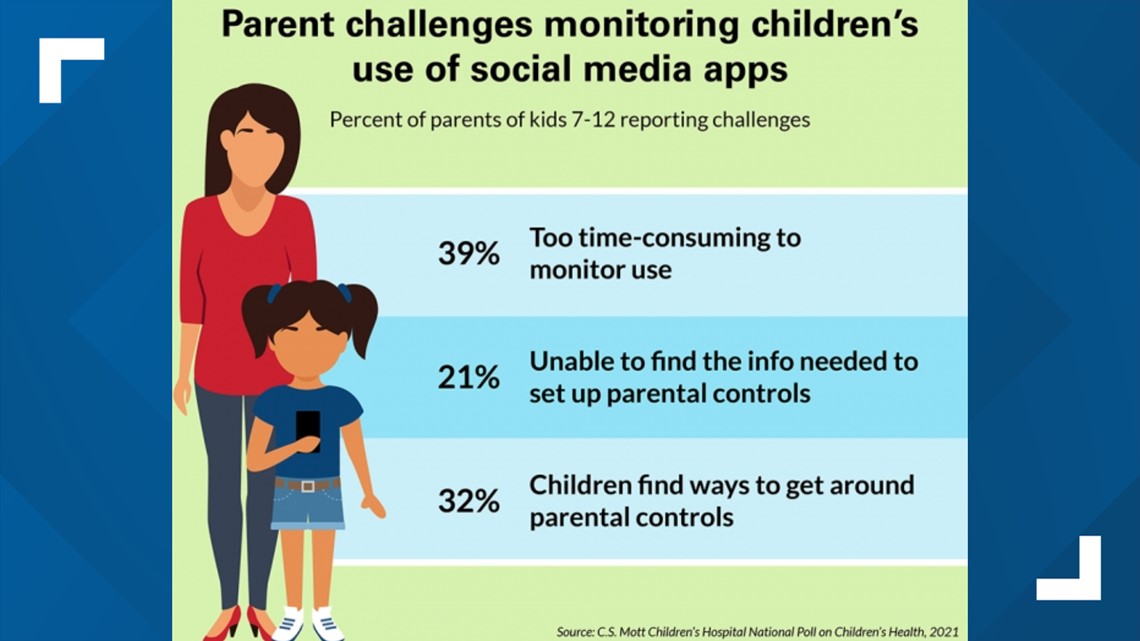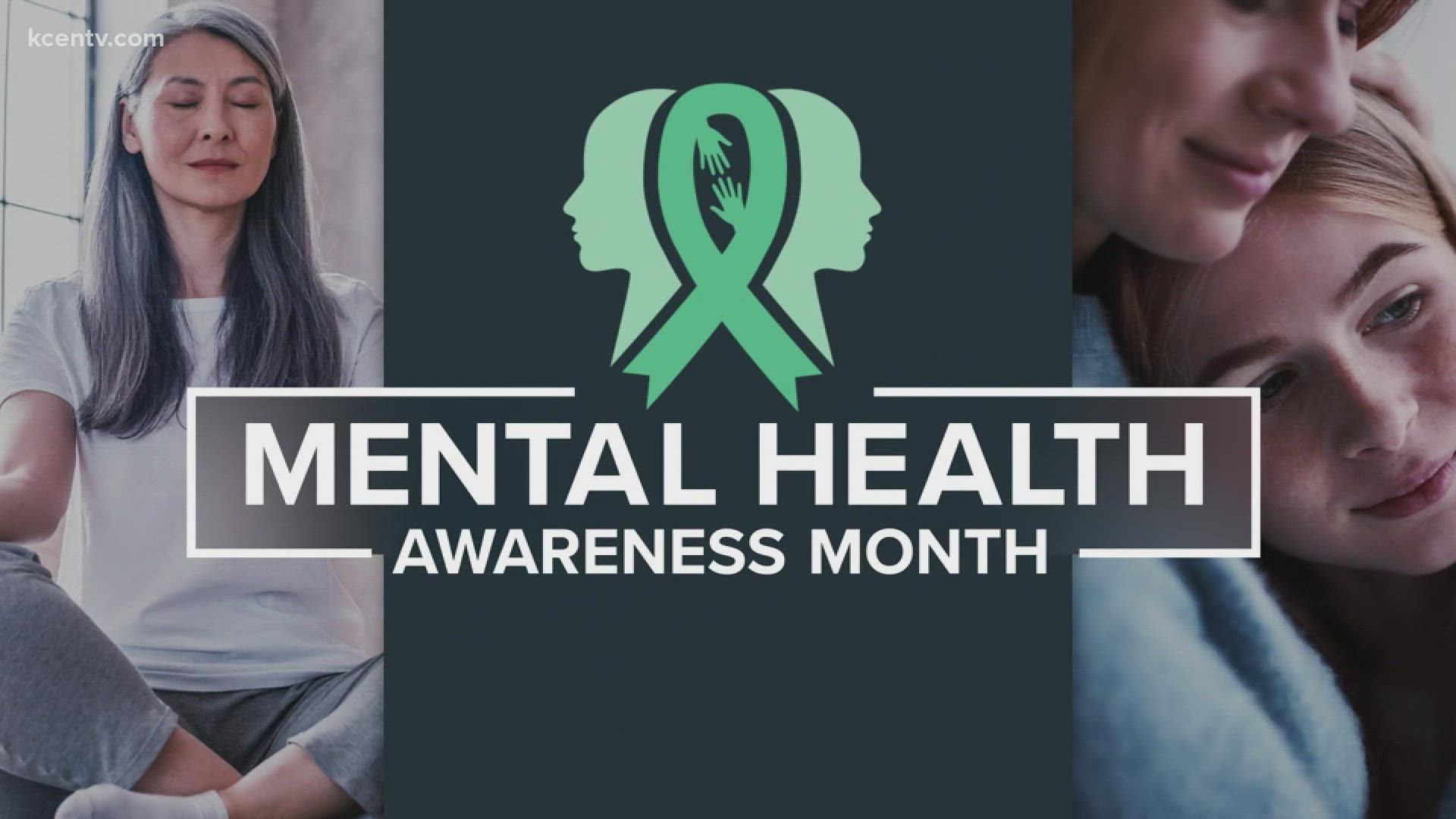WACO, Texas — May is Mental Health Awareness Month, a chance to shed light on an ongoing pandemic that's sometimes hard to talk about because of the stigma associated with it.
Katie Chadwell, a licensed Child and Adolescent Therapist with The Heart of Central Texas Behavioral Health Network, said Americans are struggling.
"I think a lot of Americans are struggling with anxiety, depression, and other mental health issues at much higher rates than we usually see. Going through a global pandemic caused a great deal of fear for people not just in our country, but around the world as a whole," Chadwell said. "For most Americans, when the pandemic hit, everything changed almost overnight."
Chadwell said the impact from the pandemic has been especially difficult for some children. She said the amount of anxiety, as well as depression, has gone up.
"We are seeing a lot higher rates of anxiety and depression, we are seeing children struggle to relate to their peers, more behavioral issues, and higher levels of fear about what is going to come next," she said.
Some facts about mental health disorders in children, aged 3-17 years, from 2016-19, according to the Center for Disease Control:
- ADHD 9.8% (approximately 6 million)
- Anxiety 9.4% (approximately 5.8 million)
- Behavior problems 8.9% (approximately 5.5 million)
- Depression 4.4% (approximately 2.7 million)
The CDC said some of these conditions occur together, for example, for children with behavioral problems, more than 1 in 3 also had anxiety (36.6%)and about 1 in 5 had depression (20.3%)
Chadwell said that parents or caregivers, a term she uses because a lot of kids don't live with their biological parents and can be triggered by that term, can help their kids but it takes awareness of themselves.
"Although caregivers might not always realize it, their children are watching the things that they say and do and will very often repeat the things that they have seen in their home, which makes it incredibly important for caregivers to model different and healthy ways to work through conflict and to share thoughts and feelings," Chadwell explained, adding that caregivers should create an open and non-judgmental environment to share their thoughts and feelings.
"It’s important to let your children know that they can talk to you about any feeling they might have and to reiterate that asking for help takes courage and does not, in any way, indicate weakness," she said. "Having a safe space to express themselves at home helps children regulate better not just in the home, but out of the home as well."
The effects of social media on children and their mental well-being can also be difficult and many children might not know how to properly channel that discussion.


According to the Cleveland Clinic, most social media apps require users to be at least 13-years old but a recent poll shared that 50-percent of children 10 to 12 years old and 33-percent of children seven to nine years old use social media apps.
As kids download the many different apps onto their smart phones, like Facebook, Twitter, Instagram and TikTok, how can parents spot potential hidden dangers that their kids might be covering up? Chadwell said it comes down to paying attention.
"One clue that something might be wrong is any drastic change(s) in behavior, affect, social interaction, eating, or sleeping," she explained. "If caregivers notice changes like these in their child/children, they should check in with them and make sure that everything is okay."
One way to make sure they are okay, Chadwell added, is to validate whatever it is they are feeling first, a crucial step in the process.
"I think that's where that open communication and that open dialogue really comes into play. If you have that relationship with your child that if they know they can come talk to you and you'll validate those feelings and listen to those feelings, they are more than likely going to come and talk to you or be honest with you if you ask about the changes you're seeing," she explained.
Chadwell said giving your child multiple opportunities to open up is also important.
"Giving your child/children multiple opportunities to open up to you and reminding them that you want to help support them, no matter what the problem is, will help them come to you when they are struggling with something more than they can handle on their own," she explained.

